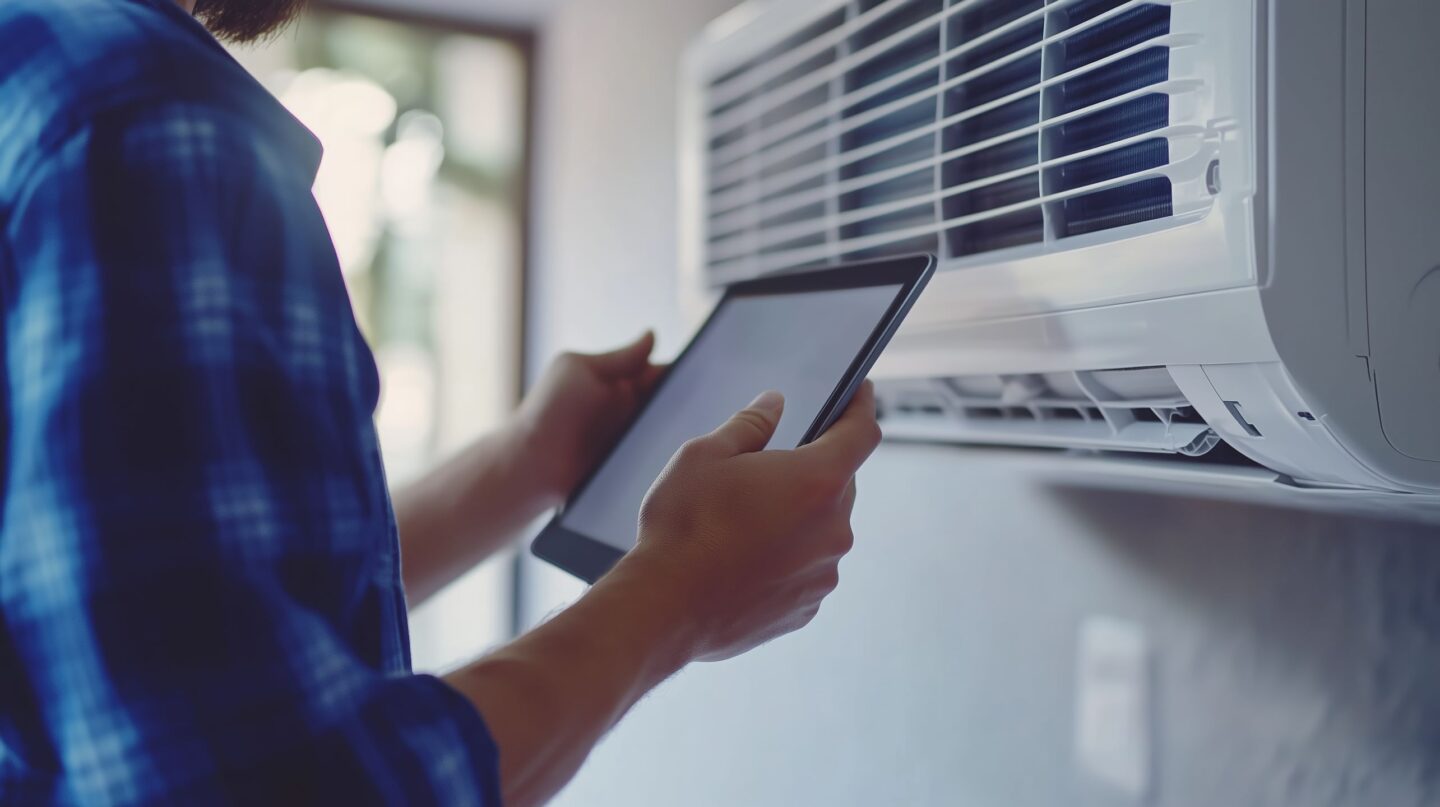
Maintaining a comfortable indoor environment throughout the year requires a well-functioning HVAC (Heating, Ventilation, and Air Conditioning) system. Whether it’s the sweltering heat of summer or the biting cold of winter, your HVAC system can help ensure consistent indoor comfort.
However, achieving this level of comfort doesn’t happen by chance—it requires regular maintenance and professional care. A well-maintained HVAC system can enhance indoor air quality, improve energy efficiency, reduce utility bills, and extend the lifespan of the equipment.
Below is a comprehensive HVAC maintenance checklist to help homeowners maintain year-round comfort and efficiency.
Change Air Filters Regularly
Air filters are the first line of defense for your HVAC system. They catch dust, pet dander, pollen, and other airborne particles to prevent them from dispensing throughout your home. Over time, these filters can clog which minimizes airflow and force your system to work harder than usual. This decreases efficiency and increases wear and tear on the system.
Therefore, replacing disposable filters every 1-3 months is best, depending on usage and air quality. Also, use high-efficiency particulate air (HEPA) filters for improved air quality, especially in homes with allergy sufferers.
Moreover, ensuring quality indoor comfort starts with professional HVAC technicians who have the expertise to diagnose, repair, and maintain your system effectively. By changing air filters regularly, you can ensure your HVAC system operates at peak performance, preventing unexpected breakdowns and costly repairs.
Inspect and Clean Air Ducts
Air ducts are responsible for distributing conditioned air throughout your home. Over time, dust, debris, and mold can accumulate in the ducts, obstructing airflow and reducing indoor air quality. Dirty ducts can also harbor allergens and pathogens, negatively impacting health. Hence, have your air ducts inspected and cleaned every 3-5 years and seal any leaks in the ductwork to prevent energy loss and ensure efficient airflow.
Check Thermostat Settings
The thermostat is the control center of your HVAC system. Incorrect settings can lead to unnecessary energy consumption and discomfort. Therefore, ensure your thermostat is functioning correctly and calibrated to maintain the desired temperature.
To do this, it’s essential to test thermostat settings seasonally. Lastly, upgrade to a programmable or smart thermostat for better energy management and convenience.
Clean Condenser and Evaporator Coils
The condenser and evaporator coils are critical components of your HVAC system. For instance, the evaporator coil is responsible for absorbing heat from indoor air, while the condenser coil is tasked to release it outside. Over time, these coils can accumulate dirt and debris, reducing their efficiency.
Make sure to clean coils annually, preferably before the cooling season. Furthermore, keep the area around the outdoor unit clear of vegetation and debris to ensure proper airflow.
Inspect Refrigerant Levels
Refrigerant is essential for the cooling process in your HVAC system. Low refrigerant levels can indicate a leak, which reduces cooling efficiency and damages the compressor. A professional technician should handle refrigerant-related issues. Ensure to check refrigerant levels during annual maintenance and never attempt to recharge refrigerant yourself—leave it to certified professionals.
Lubricate Moving Parts
HVAC systems have numerous moving parts, such as motors and fans, that require lubrication to operate smoothly. Lack of lubrication can cause friction, leading to increased energy consumption and premature wear.
Therefore, it’s best to lubricate moving parts during annual maintenance. Use the manufacturer-recommended lubricant for optimal performance.
Inspect Electrical Connections
Faulty electrical connections can pose a safety hazard and reduce the efficiency of your HVAC system. Loose or corroded wires can cause the system to malfunction or even fail entirely. Hence, make sure to inspect electrical connections during annual maintenance and turn off the power before inspecting or servicing electrical components.
Test Safety Controls

HVAC systems are equipped with safety controls to prevent overheating, electrical issues, and other hazards. Regularly testing these controls ensures your system operates safely and reliably. For instance, test safety controls during annual maintenance and replace any malfunctioning controls immediately to avoid safety risks.
Clean and Inspect the Blower Components
The blower is responsible for circulating air throughout your home. A dirty or malfunctioning blower can reduce airflow and strain the system. Regular cleaning and inspection can prevent these issues.
That’s why it’s important to start cleaning and inspecting blower components annually. Also, adjust the blower speed for optimal airflow and comfort.
Schedule Professional Maintenance
While homeowners can perform some maintenance tasks, professional HVAC technicians are essential for a thorough inspection and servicing. They have the tools and expertise to identify and address issues that may go unnoticed.
So, schedule professional maintenance twice a year—once before the cooling season and once before the heating season. Ensure you choose a reputable HVAC service provider with certified technicians.
Monitor Energy Bills
A sudden spike in energy bills can indicate that your HVAC system isn’t operating efficiently. Regular maintenance can help determine and address problems that may be causing high energy consumption. For instance, it’s crucial to monitor energy bills monthly and compare energy usage year-over-year to identify trends.
Prepare for Seasonal Changes
Your HVAC system’s needs change with the seasons. Preparing your system for seasonal transitions can prevent unexpected breakdowns and ensure consistent comfort. To get started, it’s essential to perform seasonal maintenance at the start of each heating and cooling season. Also, stock up on essential supplies, such as air filters, before the season begins.
Final Thoughts
Maintaining your HVAC system is essential for year-round comfort, energy efficiency, and cost savings. By following this comprehensive maintenance checklist, you can ensure your HVAC system operates reliably and efficiently. Remember, quality indoor comfort starts with professional HVAC technicians who can provide the expertise and care for your system needs.
*This is a collaborative post. All views and texts are my own.